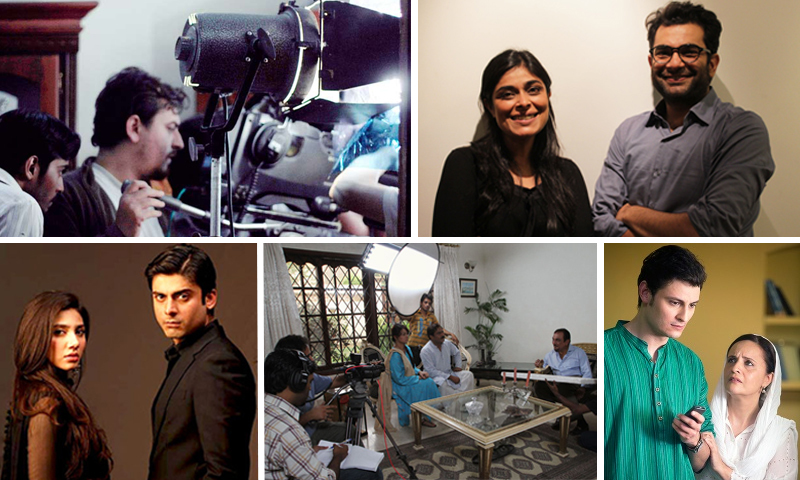Having recently had the opportunity to work with some people in Hollywood, I felt honoured and proud to be even a tiny cog in a giant machine.
However, I realised, a few months in, that over there they are not so different from us.
They, too, have their share of corruption, internal politics, monopolies and starving artists aplenty.
They succeed not because of who they are, but because of how they do things.
Let me explain.
The production process starts with either the producer or the writer. After a series of discussions, they will come to some form of consensus on the subject matter and its execution.
Then comes the matter of payment. There are scales for which writers, actors and directors are paid. Without going into too much detail about each scale, let’s just say, they vary with experience.
Read on: Documentary 'Outlawed in Pakistan' brings Emmy home
People with a full-time job cannot create content frequently. Unfortunately, in Pakistan, the only way to make a viable income as a writer is to work in bulk; to quit your day job to pursue your passion. Directors and actors take on odd jobs to make ends meet.
This leaves us with an environment where people are thinking about multiple projects at once.
Actors cannot commit to a role as fully, because their appearances need to remain intact for modeling gigs. Writers have to pad out small ideas into long drawn out storylines because that increases total episodes and pays more too, while they get started on the next one.
When you take into account, the total budget of producing a television episode, which varies from Rs 200,000 to Rs 600,000 — for sets, props, cast, crew and everything in between — you are basically buying a finished product wholesale. Wholesale requires volume.
There is also a problem with monopolisation. A writer/director/actor who has reached the upper echelons of success lend their name to new people and help their product sell for a better amount.
Read through: Exclusive interview: Presenting the Khan of the moment
The problem with that collaboration is that studios are more likely to hire these recommendations than they are to experiment, and we end up with stagnant content and repetition.
If a series is successful, it generates a lot of ad revenue through ratings. However, by the time this revenue comes through, the series has already completed its run.
Now, If the studios invest that ad revenue back in the series, they increase production quality and fix problems, creating a better product as a result.
One of our editors, in a discussion, brought up why we can’t have pilot season here in Pakistan.
I believe that is the best question for this industry.
Why not have a pilot season?
That way we test episodes with the target audience, based on their response, we green-light the good ones and shelf the others, preserving more funds for great content. Only good things will come of it.
Take a look: The story behind the loss of PTV's precious archives
Similarly, we also do not have seasons.
We tend to wrap up an entire show in one go. If a series is immensely successful, there is no capitalisation on the business end. For example, if Humsafar was split only in two seasons, they could have made a fortune in ad-revenue based on how much people want to catch up between breaks.
Same goes for Bulbulay, they could have time to think of better storylines in better scenarios, giving the audience something new to enjoy.
Whether or not you like these shows, they are rating giants and it makes perfect sense to capitalise on that prospect.
Internationally, networks use popular shows as anchors to help other shows succeed. That way, they have an unending stream of great content at a set time, ensuring viewership.
Explore: Is 'Bulbulay' bad for comedy?
So, why isn’t any of this happening already?
Simply because the people who are in charge of making decisions are already making a lot of money the way things are.
“If it ain't broke, don't fix it” is the operative phrase. They save money by buying in bulk and keep all the ad revenue.
When it comes to an argument on money, things inexplicably turn in favor of the person who has it. If they can be convinced that there is more money to be made through reinvestment and better pay scales, they might reconsider the current model.
Imagine how, under all of this stress of churning out content and paying the bills, we are still able to release some decent content from time to time.
Now imagine how much farther we could go if this business model is revamped.













































